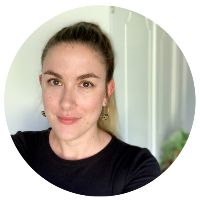How to Begin Healing from the Grief of Infertility, Childlessness and Pregnancy Losses
- annapietrograzia
- Feb 20, 2023
- 3 min read
Updated: Apr 28, 2023
2 Questions to ask yourself to identify your grief start healing.

Imagine you’re standing under a big umbrella.
Instead of being protected, you see from the corner of your eyes something falling, onto your shoulders and running down your arms.
You’re feeling a trickling sensation... but it hurts… a lot.
You take a closer look.
It’s not water, it’s pain; emotions you’ve never felt before and changes in your life you’d never imagined:
Everything that’s triggering your grief.
The loss of your hopes and dreams.
Another failed cycle.
The crushing blow of realising you’re the last of your friends with no children.
The large family you’d hoped for is slipping away.

How do I know if it’s grief?
Grief is the responses and reactions (including behaviours and feelings) we live out when we experience a loss. Any kind of loss.
The tricky thing is many losses can be hard to spot, hard to own and be seen as ’worthy of grief’ even by us, the people experiencing the grief.
A note on disenfranchised grief
This is grief that the rest of society doesn’t recognise, see as valid or think is ‘that bad or that sad…’
Some people have a really hard time understanding why a person would be upset about ‘loosing something they never had’, loosing something or someone they couldn’t see with their own eyes.
Unfortunately, this means people with real losses feel invisible and isolated.
If someone hasn’t died, am I really grieving?
Yes, yes and yes. Loss is loss and is worthy of grieving even and especially when it has nothing to do with the death of a person.
One of the most common types of loss in the areas of infertility and being childless is ‘losing aspects of self’. When hopes, dreams and plans for this area of our life don’t turn out, we feel acutely that we’re being left behind our friends, family, and society.
We also grieve when we don’t get to experience a stage of development that others get to.
Developmental loss occurs through all life stages, especially when your friends are experiencing things with their families like first days of school, graduations, weddings and grandchildren.
All these future milestones are what we’re consciously or subconsciously dealing with when we recognise that we’re sad about this loss. Many of our expectations of the future are wrapped up in our story.

Losses that touch fertility
Losses can be either tangible (obvious) or intangible (not so obvious).
The list below is by no means complete, but a good place to start. Consider starting your own list, helping you give name to and validating the losses you’re working through today.
Tangible:
The death of a human being, either before or after birth e.g., miscarriage, stillbirth, abortion.
Loss of embryos through the IVF journey.
Relationship breakdown.
Career impact or loss of work from distressing emotions and requiring leave for treatment.
Intangible:
The dream of a baby/ family
Family bonds; relationships like grandchildren/ grandparent bonds
Dreams of nieces and nephews growing up together.
Missing future milestones; graduation, weddings, family celebrations.
Never experiencing a positive pregnancy test.
Living a life that is childless not by choice.
Two questions to ask yourself.
Take a moment to reflect on the questions below:
Have I experienced any of the above-mentioned losses in my life? Have I experienced any other losses that aren’t mentioned? List them.
How do I feel I’m coping with what’s happened? If I had to rate how I feel today from 1 to 10 (being the best) where would you rate myself?
The way we express our grief is as diverse as the people on this planet.
To start getting an idea of what grief can (but not always) look like, download your free Grief Checklist by signing up to my Resource Library.
How can AP Counselling help me?
Being unable to have children is a unique pain that's both gut-wrenchingly grieving and often misunderstood.
We know the lived experience of counsellors is a powerful tool in helping women like you address griefs of life.
Because of my own childless journey, I’m passionate about helping women break free from the pain of grief.
I work with childless women, the infertility journey, and other reproductive grief's, helping women to come to terms with what's happened.
If you're ready to talk to someone about what’s been going on for you Click Here to get in touch.

Text 0475 061 242 (in Australia)


Comments